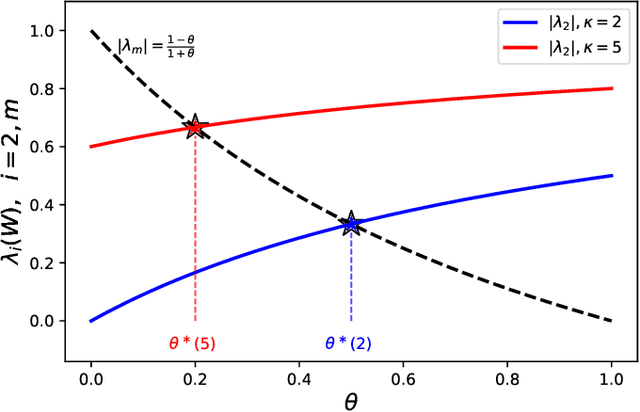Yifan Hua
GenTorrent: Scaling Large Language Model Serving with An Overley Network
Apr 30, 2025Abstract:While significant progress has been made in research and development on open-source and cost-efficient large-language models (LLMs), serving scalability remains a critical challenge, particularly for small organizations and individuals seeking to deploy and test their LLM innovations. Inspired by peer-to-peer networks that leverage decentralized overlay nodes to increase throughput and availability, we propose GenTorrent, an LLM serving overlay that harnesses computing resources from decentralized contributors. We identify four key research problems inherent to enabling such a decentralized infrastructure: 1) overlay network organization; 2) LLM communication privacy; 3) overlay forwarding for resource efficiency; and 4) verification of serving quality. This work presents the first systematic study of these fundamental problems in the context of decentralized LLM serving. Evaluation results from a prototype implemented on a set of decentralized nodes demonstrate that GenTorrent achieves a latency reduction of over 50% compared to the baseline design without overlay forwarding. Furthermore, the security features introduce minimal overhead to serving latency and throughput. We believe this work pioneers a new direction for democratizing and scaling future AI serving capabilities.
Secure Decentralized Learning with Blockchain
Oct 10, 2023Abstract:Federated Learning (FL) is a well-known paradigm of distributed machine learning on mobile and IoT devices, which preserves data privacy and optimizes communication efficiency. To avoid the single point of failure problem in FL, decentralized federated learning (DFL) has been proposed to use peer-to-peer communication for model aggregation, which has been considered an attractive solution for machine learning tasks on distributed personal devices. However, this process is vulnerable to attackers who share false models and data. If there exists a group of malicious clients, they might harm the performance of the model by carrying out a poisoning attack. In addition, in DFL, clients often lack the incentives to contribute their computing powers to do model training. In this paper, we proposed Blockchain-based Decentralized Federated Learning (BDFL), which leverages a blockchain for decentralized model verification and auditing. BDFL includes an auditor committee for model verification, an incentive mechanism to encourage the participation of clients, a reputation model to evaluate the trustworthiness of clients, and a protocol suite for dynamic network updates. Evaluation results show that, with the reputation mechanism, BDFL achieves fast model convergence and high accuracy on real datasets even if there exist 30\% malicious clients in the system.
Efficient and Reliable Overlay Networks for Decentralized Federated Learning
Dec 12, 2021



Abstract:We propose near-optimal overlay networks based on $d$-regular expander graphs to accelerate decentralized federated learning (DFL) and improve its generalization. In DFL a massive number of clients are connected by an overlay network, and they solve machine learning problems collaboratively without sharing raw data. Our overlay network design integrates spectral graph theory and the theoretical convergence and generalization bounds for DFL. As such, our proposed overlay networks accelerate convergence, improve generalization, and enhance robustness to clients failures in DFL with theoretical guarantees. Also, we present an efficient algorithm to convert a given graph to a practical overlay network and maintaining the network topology after potential client failures. We numerically verify the advantages of DFL with our proposed networks on various benchmark tasks, ranging from image classification to language modeling using hundreds of clients.
 Add to Chrome
Add to Chrome Add to Firefox
Add to Firefox Add to Edge
Add to Edge